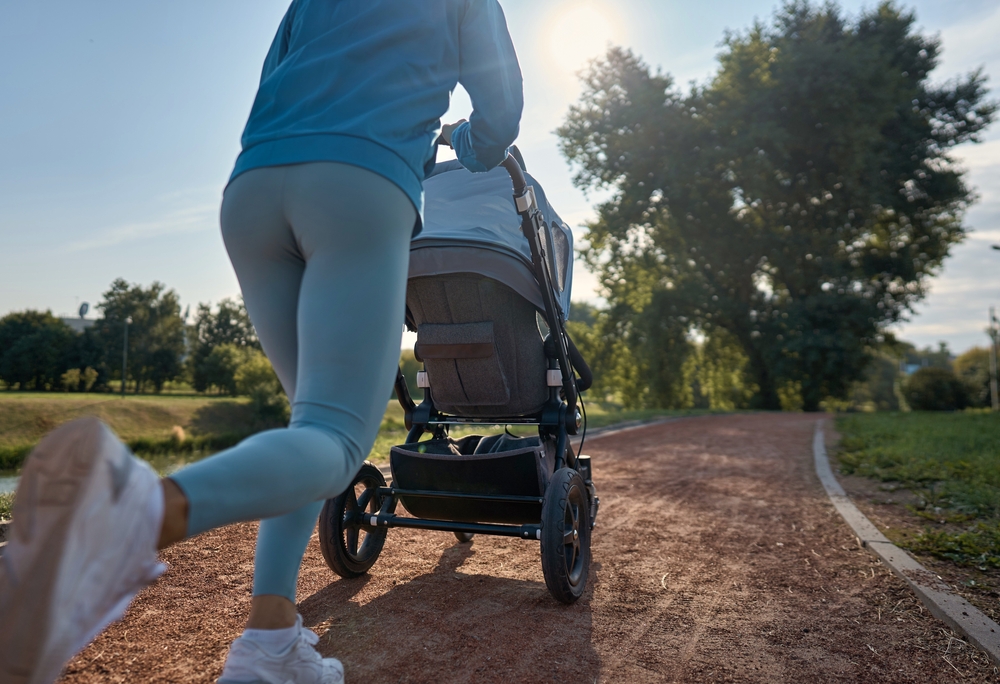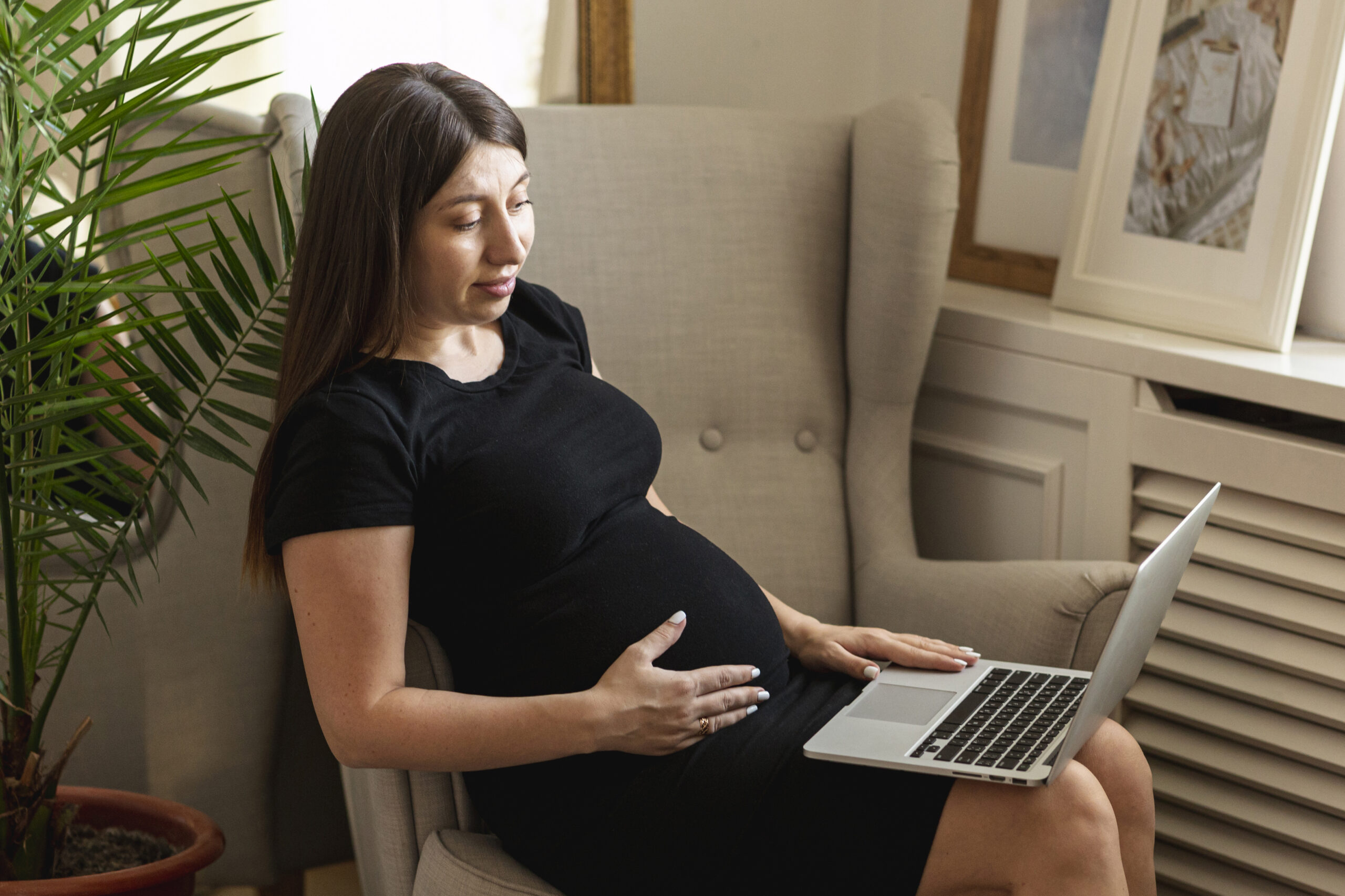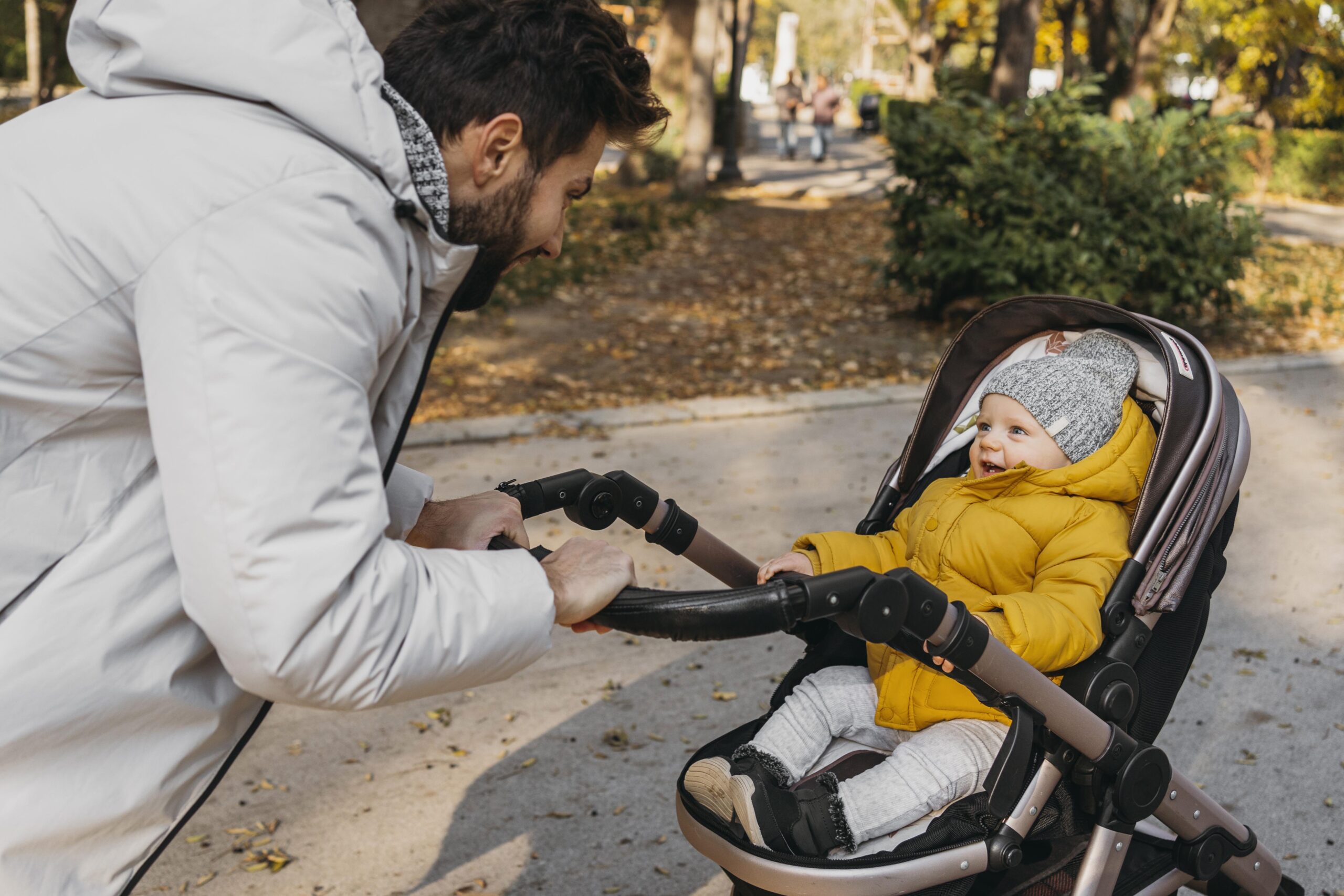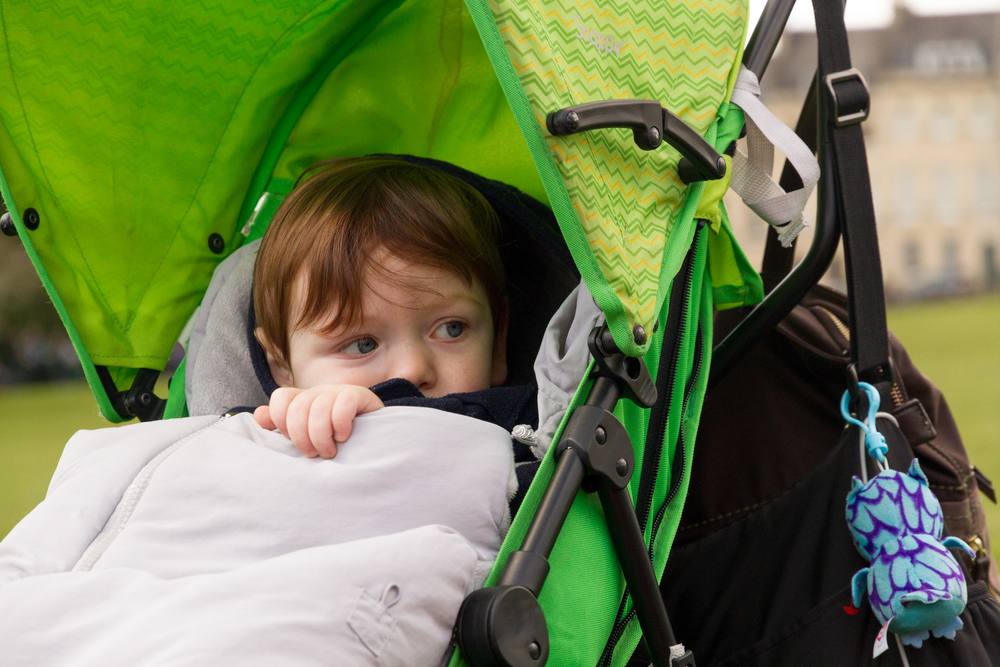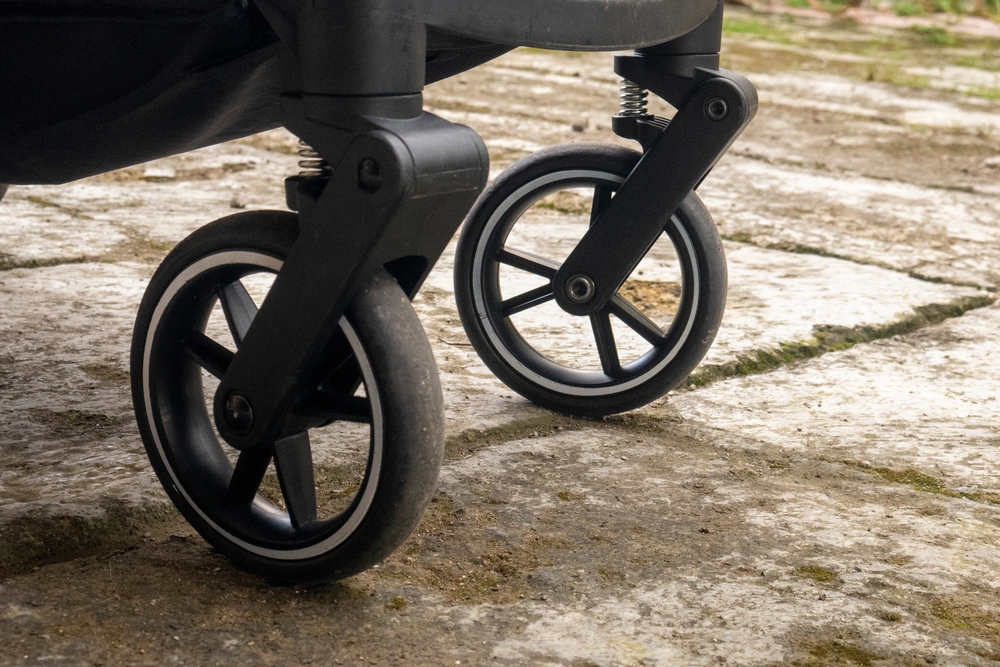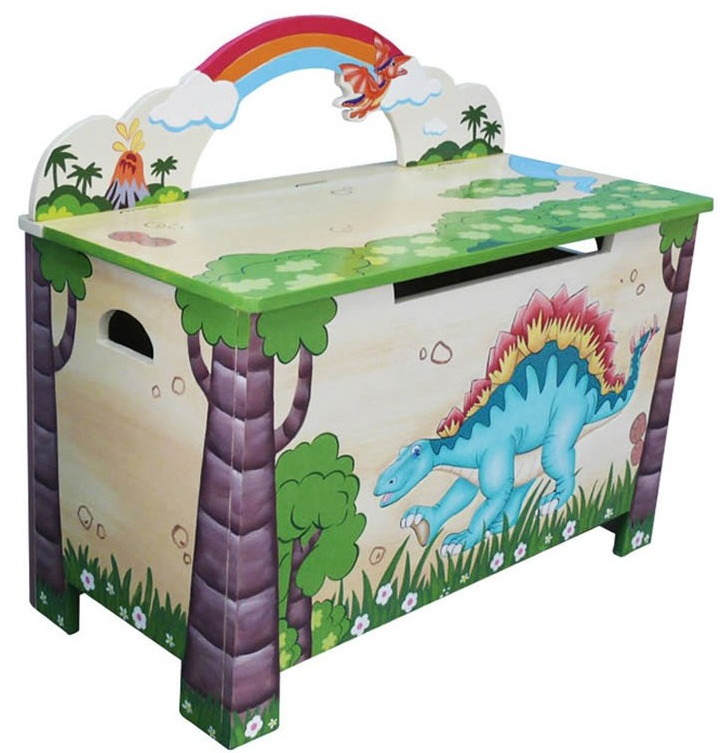As a runner, it’s likely you’re itching to get back into the swing of things after having your little one. But it’s important to make sure you’re safe, and that you know everything there is to know about how to keep your baby happy and comfortable too.
Whether you’re a seasoned runner with a newborn or looking to pick up a new hobby to get plenty of fresh air with your new arrival, there are some things you need to know about running with a baby.
We caught up with Women’s Fitness Specialist and Founder of MAMAWELL, Rosie Stockley, to get her insight into everything you need to know when running with a little one.
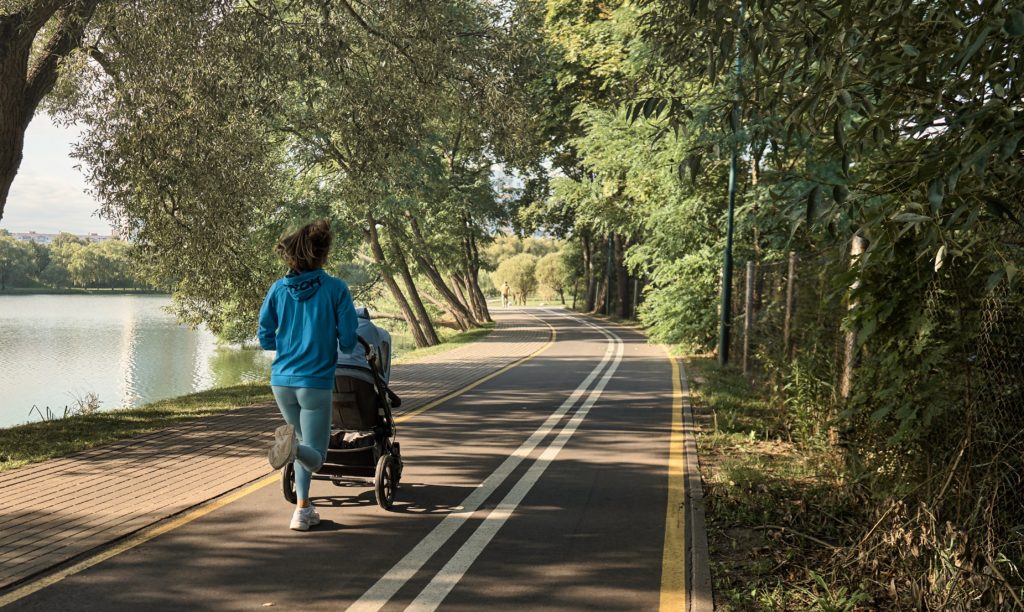
When Can you Start Running with a Baby?
Rosie says that current guidelines are to wait at least 12 weeks postpartum before you start running. This is because the body goes through a number of adaptations during birth, so it’s essential you give yourself time to fully recover gradually. It’s important that you have the time to strengthen your pelvic floor and surrounding muscles before you start any kind of high impact training such as running.
All new mums must remember that every woman is different and has different experiences with childbirth and recovery. So, take your own time and discuss this with your health visitor or GP if you have any questions.
Prior to 12 weeks, Rosie says that cardio work can definitely be included but you should try to focus on lower impact cardio, to gradually increase your strength and resistance.
How Can I Make Sure my Baby is Comfortable?
As it’s essential that you’re prepared and feeling your best when you go on a run, it’s also important your baby be as comfortable as possible. Rosie tells us to make sure your little one is dressed for the weather – whilst you’re going to be warm and sweaty from your exercise, it’s important to remember that they’ll be sat still. A warm pram suit is perfect, and you can always layer with a blanket if you need to! Remember – if it’s windy, Rosie recommends a rain cover to keep your baby nice and cosy!
Having the right running stroller is important too, you want something that your baby is going to be comfortable and safe in. Buggies made for running have better suspension, larger wheels and make for a more comfortable ride all around. They typically have three wheels to make running easier. This Hauck Runner Pushchair is a firm favourite – but it is all down to personal preference at the end of the day!
Timing is everything, and it’s completely personal to you. You’ll quickly discover what works best for you and your baby, but Rosie says timing should be considered for your run. Sometimes it’s great to have your little one asleep but other times they may want to be awake and looking at the view. Whatever suits you and your little runner in the making is best to follow!
What Should I Take with Me on My Runs?
It can be hard to know what to take with you on a run, after all, it can depend a lot on the time of year. However, Rosie recommends that at this time of year and in colder months, to take layers for yourself, as it’s difficult to gauge how hot you’re going to get. Additionally, make sure you take a bottle of water – hydration is key!
If you need to stop and feed your baby, you’ll be thankful for bringing a warm top or coat with you, Rosie says! But other than that, if you think your baby won’t need changing, you shouldn’t need much else for them.
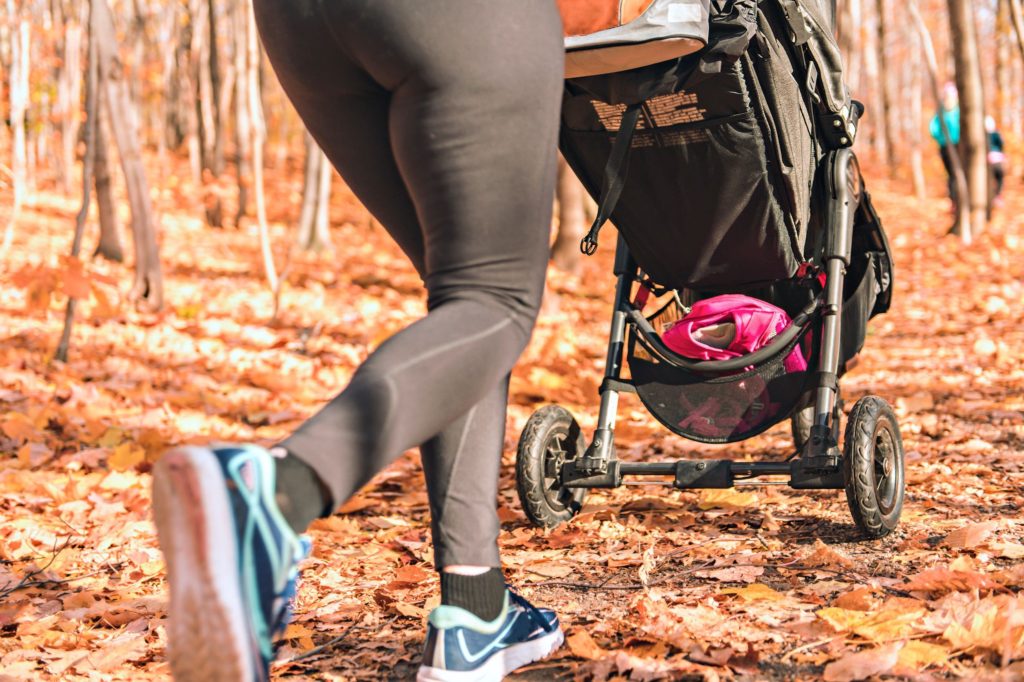
Rosie’s Top Tips for Post-Partum Exercise
- Follow a Programme – by following a programme you can be sure you’re being safe and have the support you need. Rosie recommends her MAMAWELL Method for a holistic approach that incorporates strength and cardio.
- Don’t Rush It – so many women go too hard, too early and it can lead to setbacks further down the line.
- Focus on Strength and Cardio – don’t forget your pelvic floor, it contributes to so much as do the muscles around it.
- Choose Something you Love – the barrier to entry is lower if you love what you’re doing. You’ll feel great once you get moving again but there’s a lot that can get in the way after birth, so you want to make things as easy as possible on yourself.
- Talk to Your GP – Rosie says to seek help from your GP or a women’s’ health physio if you have any concerns about your postpartum body or mood. Don’t suffer in silence, you’re too important for that!
If you’re interested in learning more from Rosie, you can follow her on Instagram.

